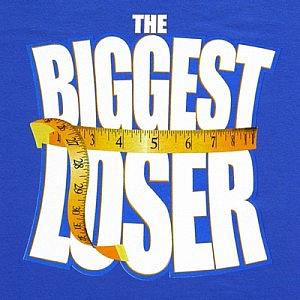'The Biggest Loser': inspiring or unhealthy?

Does "The Biggest Loser" empower people to lose weight and transform their lives, or does it promote unsafe, unrealistic methods for weight loss?
An online debate over the television reality show erupted last week at MedPage Today in response to a researcher's study of the cultural assumptions behind "The Biggest Loser."
Natalie Ingraham, who is on the faculty at the University of California San Francisco, and her colleagues have been analyzing episodes of the popular show and the messages it sends about fatness and fitness. The study is still under way, but Ingraham shared some of the early findings during a panel discussion at a recent meeting of the American Public Health Association.
Among some of her preliminary conclusions: The show promotes unrealistic expectations about how much and how quickly people can lose weight. It rarely follows up with contestants afterwards to find out whether they maintained their weight loss.
More than this, though, "The Biggest Loser" suggests that people who are overweight can lose large amounts of weight, and that this is the ideal they should strive for, Ingraham said in her findings.
Her research prompted a response from none other than Bill Germanakos, the Season 4 winner of "The Biggest Loser" who now works as a health and wellness spokesman. Germanakos took exception with how the show was characterized, pointing out that participants have access behind the scenes to dietitians, psychologists and physicians specializing in weight loss.
Far from being stigmatizing, the show is inspirational, Germanakos said. "It shows obese people that are helpless and hopeless that there is HOPE and is meant to inspire and motivate those who thought they had tried everything."
Sure, the show tends to dramatize people's struggles for the sake of ratings, and the weight loss regimen it depicts doesn't represent real-life conditions, other commenters agreed. But most said they found "The Biggest Loser" motivational. It's "a great show that promotes healthy lifestyles," a registered dietitian wrote.
Really? "Losing weight is hard, keeping it off is even more of a challenge as supported by research findings – most people gain back the weight they lose plus a few more pounds," one commenter observed. She said she watched the show a few times and then quit. "Health is not about competing against each other, even in the spirit of being inspirational," she wrote.
While the show may have helped some of the participants, the real issue "is not about the few, it is about the many," someone else wrote. "These messages simply do not represent the reality for the majority. They continue the cycle of shame, blame, guilt, discrimination and abuse (by self and others).
There in fact has been some ongoing debate about both the message and the methods of "The Biggest Loser," although Ingraham appears to be one of the first to attempt to systematically analyze the show. Last year the St. Petersburg (Fla.) Times interviewed Kai Hibbard, who was the second-place winner in 2006 and who painted a less-than-inspirational picture of life behind the scenes. Contestants were dehydrated and often subjected to humiliation, Hibbard told a reporter. By the end of the show, her hair was falling out and her family was urging her to see a therapist. (Producers of "The Biggest Loser" said they've made changes in the show since then and they advocate "doing this the right way.")
Psychologists also have criticized the show's emphasis on weight loss as the sole measure of success, the implication being that overall physical and mental health don't count and that if people don't lose enough weight, they're failures.
One of the most blunt assessments comes from Big Fat Blog, which questioned the entire premise of the show before it even went on the air:
This is substantial, and substantially harmful, reinforcing notions that all fat people are gluttonous over-consumers of junk food (all the temptation foods are junk, pastries and snack items) with no willpower unless something major ($1 million) is at stake, presenting the idea that a rigid regimen of forced exercise and a diet seemingly consisting of a lot of raw carrots, brown rice and grilled chicken breasts is the only (best?) way to lose weight, and that it is healthy to make a major change in activity and food intake levels all at once and any effort the body makes to resist those changes is entirely in the mind, indicative of a lack of will.
Add the coercive elements – the team and individual competition, the fact that team members lose challenges and therefore money and/or prizes and/or food privileges due to the behaviors of others - and this is just a gross violation; not just of the people who've been led (by a billion different factors) into believing that their bodies make them deserving of this treatment in order to win money but of all fat people, who are now given another set of false and dangerous media-created standards to either deny (the eating stereotypes) or live up to (the draconian diet/exercise ideas).
In the interests of full disclosure, I've never watched "The Biggest Loser" nor do I want to. Science still has a lot to learn about the mechanisms that govern weight and the complex ways these interact with psychology, environment and social behavior, and we oversimplify this at our peril. I'd like to think the definition of good health encompasses more than a single number on the scale. What do readers think?
(This post originally appeared on HealthBeat.)

